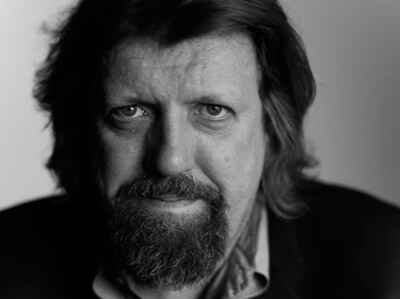It has been a couple weeks since New York’s Public Theater reneged on its commitment to stage The Siege, a production it was planning to put on in May in collaboration with the Friends of the Jenin Freedom Theatre. The Public Theater offered no concrete explanation, instead providing this boilerplate statement from Director of Communications Candi Adams: “We have great respect for the Freedom Theatre. It’s our policy that The Public doesn’t comment on shows that have been under consideration.” According to a statement of the Freedom Theatre website, cancelling the US tour of the production, their members are disappointed in being denied to chance to show the play to the US public but still hope to stage the play some time in the fall of 2017.
Though no contract had been signed, the play’s Palestinian co-director Nabil Alreaa said there had been an oral agreement between the two theaters that was supposed to result in a signed contract by January. “This was a great opportunity to know the Public Theater,” said Alreaa, “especially the Artistic Director Oskar, to talk to him about the work we do.”
He is referring to Oskar Eustis, who was committed enough to the production that he persuaded the Jenin Freedom Theatre to turn down offers from other bidders. Now that the unofficial deadline has passed, Alreaa and his co-director Zoe Lafferty – to say nothing of the many others who have spent the past year in pre-production – are understandably frustrated and upset that the Public Theater backed out of the collaboration with little to no pretext.
Freedom Theatre spokesperson Felice Gelman is still in the dark about why exactly the production was shut down: “As to what the rationale was, I know it didn’t involve any technical or artistic or scheduling or other types of problems.”
While Gelman doesn’t have any solid information, she knows that any voices critical of Israel face a constant risk of being silenced. “We know that presenting Palestinian artists and the Palestinian narrative, which The Siege presents, is incredibly controversial,” she says, “and it becomes particularly controversial the more public the institution.” In this case, those who find the Palestinian cause overly “controversial” prefer that the controversy remain hidden in offices and boardrooms rather than be made public so that audiences can make up their own minds.
It seems likely that some pressure came down from the board, but who exactly is behind this pressure is yet to be seen. At the very least, this incident provides yet more evidence that there are powerful people who see Palestinian voices as a threat and are determined to silence them. And why might some feel threatened by The Siege, which is based on the real-life story of the 39-day IDF siege of Bethlehem during the second intifada? The likely problem Zionists would have with the play (if comparable past cases offer any indication) is not simply the subject, which is a matter of historical fact, but the idea that the story is told from the Palestinian perspective.
The refusal of the Public Theater to provide even the most basic explanation for its sudden change of heart suggests that the cancellation is part of a larger problem. It is the same problem that led the New York Theatre Workshop to shut down the late Alan Rickman’s production of My Name is Rachel Corrie in 2006 for similarly unclear reasons, and that led an angry crowd of Zionists, some wearing yellow Star of David patches, to protest the Metropolitan Opera’s presentation of Death of Klinghoffer in 2014 for daring to show Palestinians in a sympathetic light. It is a problem that amounts to a particularly American variety of soft censorship, the kind that results not from legal constraints on free speech so much as the financial power of private organizations and individuals, and which frames its repression of opposing viewpoints in innocuous language that obscures its true purpose.
This is how consent is manufactured in the United States: not by government edict but by the arbitrary will of those with money and, therefore, power. It is the censorship responsible for the uniquely Caucasian flavor of Hollywood and the knee-jerk Islamophobia of the American media establishment; it is the censorship that smears Boycott, Divestment and Sanctions (BDS) activists as anti-Semites and restrains academic freedom in the name of cultural sensitivity. It is a denial of artistic freedom that can be traced directly to the unjust power imbalances that the free market creates.
The maddening fact is that members of the Public Theater’s leadership – who knows which ones or how many – had the power to ruin a production a year in the making. Even more absurd, the decision seems to have been made solely out of some vague, cowardly fear that presenting the Palestinian cause in a favorable light might make yet another crack in the increasingly fragile Zionist consensus. The fear of Palestinians telling their side of the story is proof in itself of the this fragility, for it points to an even bigger fear: the fear that if these stories are told, the status quo pro-Israel narrative might become much harder to believe.



i seriously doubt that. the decision was likely made for financial purposes. someone who funds the theatre probably threatened to stop funding and the theatre couldn’t afford to piss them off. the opposite of the dean of harvard’s response, where he held ground: https://mondoweiss.mystagingwebsite.com/2016/02/incident-at-harvard-law-school-involving-donor-influence-and-palestine-event-has-troubling-implications/
Addendum: Last year “The Siege” toured to about a dozen theaters in England and Scotland, receiving much media attention and good reviews. A noisy campaign against the play included demonstrations and leafletting at theater entrances, cries to withdraw funding for the theaters, and outraged statements to the press. Nonetheless, all performances took place without incident, and not one on the whole tour was cancelled.